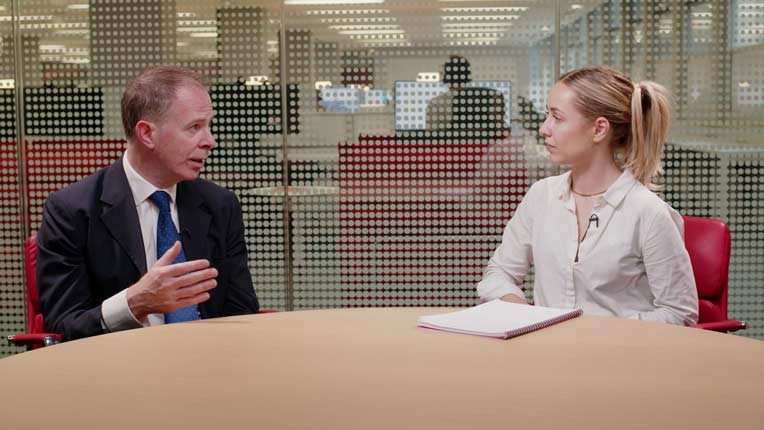The European corporate bond market continued to outperform its US counterpart over the past month. So far in the fourth quarter, Morningstar's Eurobond Corporate Index has returned 1.16% compared with the US Corporate Bond Index, which has only risen 0.54%. Year to date, our Eurobond Corporate Index has risen 2.27%, blowing away our US Corporate Bond Index, which has lost 2.04%.
The outperformance of the European bond market has been driven by a combination of greater credit spread tightening among European corporate bonds, as well as lower losses from rising interest rates.
The current credit spread level of the European corporate bond market is the tightest it has been since May 2010—when the contagion from the Greek sovereign bond crisis began to spill into widespread concerns regarding the health of the European banking system. While the current spread levels indicate the market is sanguine about credit risk in Europe, we are concerned that the corporate market may have got ahead of itself.

The rate of eurozone GDP growth faltered in the third quarter as real GDP rose only 0.1% compared with 0.3% reported in the second quarter. The second quarter was the first time the euro area had reported positive GDP growth since the third quarter of 2011. Germany's GDP growth rate fell to 0.3% in the third quarter of 2013 from 0.7% in the prior quarter, and France stumbled to a 0.1% decline for the quarter after having grown 0.5% in the second quarter. Offsetting some of the weakness in the larger economies, several of the southern peripheral economies showed improvement. Spanish GDP grew 0.1%, the first positive report since the second quarter of 2011. Italy continued to struggle as its GDP registered a 0.1% decline, but the rate of decline has now decreased sequentially for the past three quarters.
To support economic growth and assuage deflationary fears, the ECB, in a surprise decision, cut its main short-term rate by 25 basis points on November 7th. The European Commission cut its forecast for 2014 GDP to 1.1% growth in the eurozone, the second reduction it has made this year (it cut its forecast in May to 1.2% from 1.4%). The EC also increased its unemployment estimate to 12.2% next year from 12.1%. Due to stagnant economic growth, S&P cut its credit rating for France by one notch to AA. S&P said lower economic growth is constraining the country's ability to shore up its credit quality. If the eurozone is unable to sustain positive economic growth, we are concerned that this downgrade may be the beginning of a reassessment of credit quality of other European countries as well.
Peripheral European sovereign bonds have performed extremely well this year. Since the beginning of the year, the spread between Spanish and German bonds has tightened 162 basis points to a current spread of +233. The spread on Italian bonds over German bonds has also tightened substantially, having declined 83 basis points to +235. While investors are betting that the economies of those two countries have bottomed, the banking systems of both countries have continued to be under pressure as non-performing loans (NPLs) continue to grow. ![]() Intesa Sanpaolo (ISP), for example, reported that in the third quarter gross non-performing loans grew to 15.9% of total loans from 12.7% in the year-ago period. Meanwhile,
Intesa Sanpaolo (ISP), for example, reported that in the third quarter gross non-performing loans grew to 15.9% of total loans from 12.7% in the year-ago period. Meanwhile, ![]() UniCredit (UCG) reported its non-performing loans grew to 14% from 12% last year. Doubtful loans as reported by the Bank of Spain have grown every month since the end of last year, while the total amount of loans outstanding has steadily decreased.
UniCredit (UCG) reported its non-performing loans grew to 14% from 12% last year. Doubtful loans as reported by the Bank of Spain have grown every month since the end of last year, while the total amount of loans outstanding has steadily decreased.






























